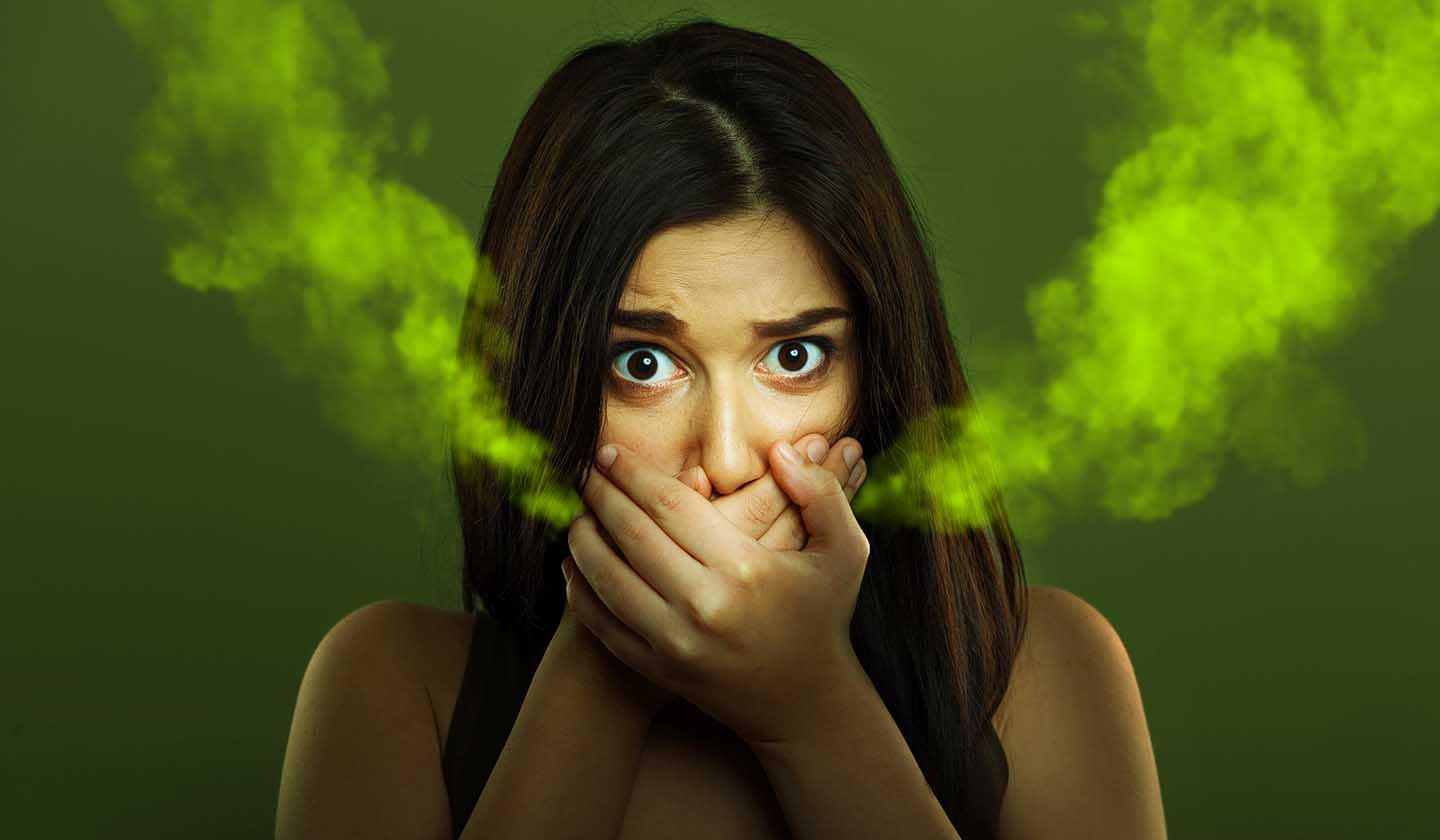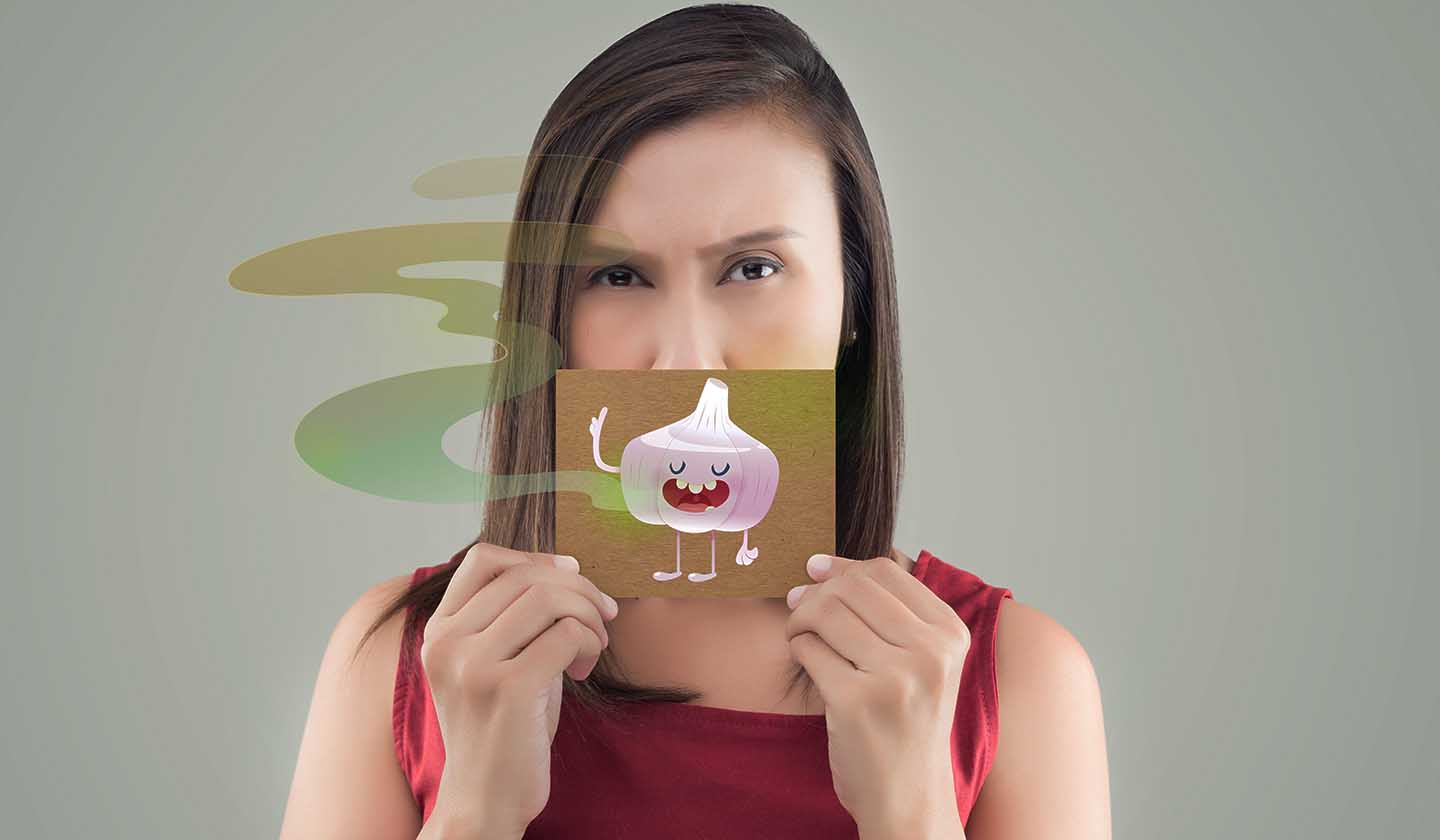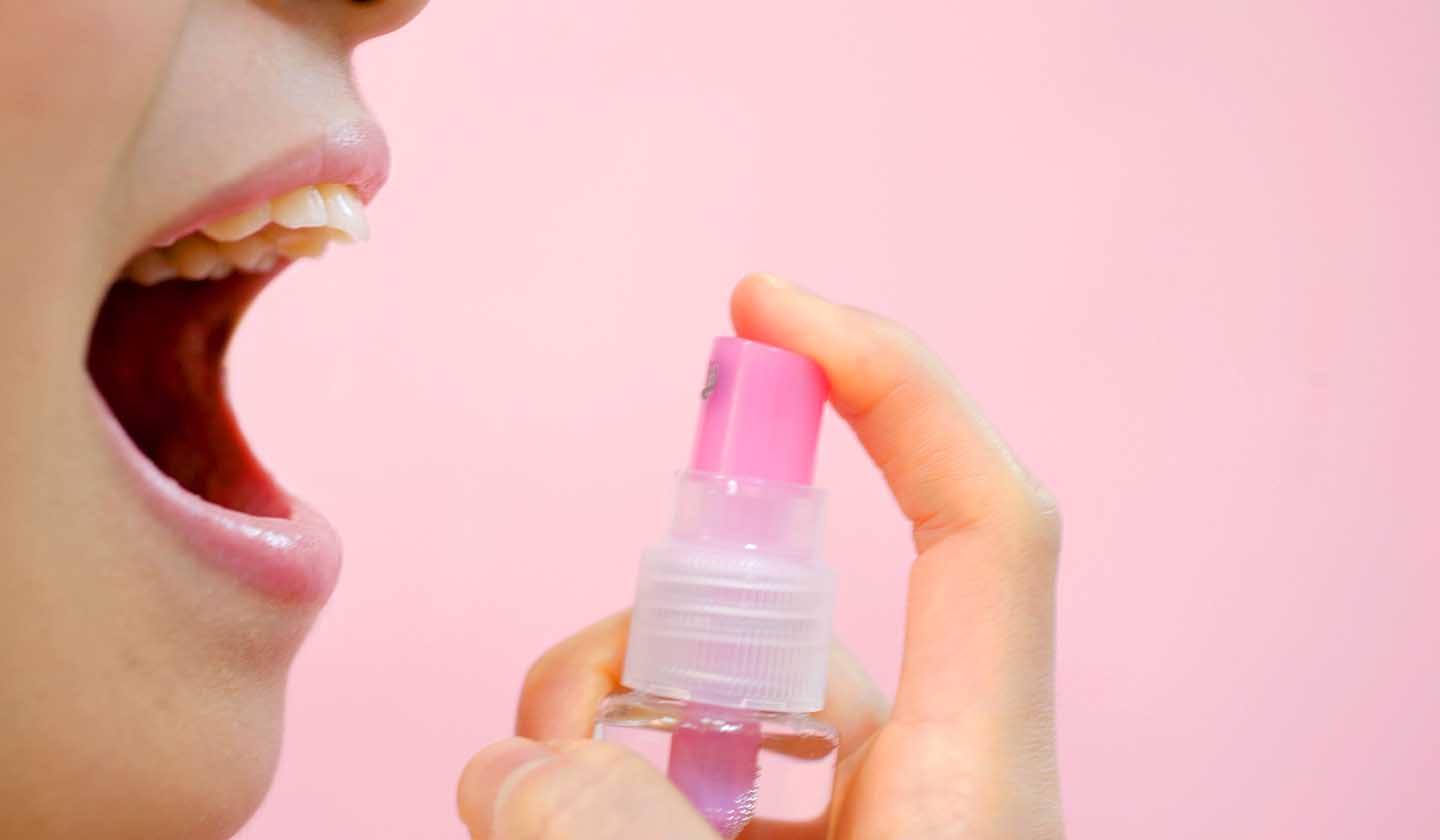Digestive system
Good habits, good breath

The problem of bad breath can create some situations of embarrassment and social awkwardness, which can lead to problems of self-esteem.
Did you know that this problem affects about 30% of the world population? Halitosis is quite common, and the good news is that it can be treated.

Causes
More than 80% of halitosis cases originate in the oral cavity, the main cause being the action of bacterial flora present in the mouth on food residues that are ingested. The fermentation of these residues leads to the production and release of foul-smelling gases. Foods like onions, garlic, excessive consumption of coffee or alcoholic beverages can affect your breath. However, there can be other causes of halitosis:
- Gastroesophageal reflux;
- Xerostomia or "dry mouth" (saliva has antiseptic properties, so if its production is deficient, the breath will be worse);
- Sinusitis;
- Tonsillitis;
- Broken teeth or teeth with cavities;
- Presence of tartar;
- Gingivitis, periodontitis;
- Poor oral hygiene (of teeth and tongue);
- Smoking;
- Poorly cleaned dental prostheses;
- Some medications such as antidepressants and antihypertensives (because they decrease saliva production);
- Liver, intestinal, pulmonary, and renal disorders.

What to do to fight bad breath?
The treatment of halitosis involves adopting good oral hygiene. Follow these tips:
- Brush your teeth with a soft brush, at least 2 times a day (ideally 3 times, after main meals);
- Use dental floss;
- If you use braces or a dental prosthesis, perform their hygiene daily;
- Clean your tongue with a tongue scraper;
- Gargle with an alcohol-free mouthwash (as alcohol dehydrates the oral mucosa);
- Change your toothbrush every 3-4 months;
- Chew chewing gum (without sugar) to stimulate saliva production (only temporary improvement);
- Avoid the consumption of alcohol, coffee, and tobacco;
- Avoid the consumption of foods that cause bad breath;
- Drink plenty of water throughout the day;
- Go to the dentist regularly;
- Avoid prolonged fasting (due to low blood glucose, ketones are produced, causing the so-called “ketone breath”).

There are several products on the market to mask bad breath, such as sprays and lozenges that refresh your mouth. Ask your pharmacist for advice.
If, even despite following these recommendations, you still have problems with bad breath, you should see a doctor.
Sources
iSaúde
Farmácia Distribuição Magazine
Também lhe poderá interessar
Mouth and teeth
Healthy mouth - At all ages
Mouth and teeth






